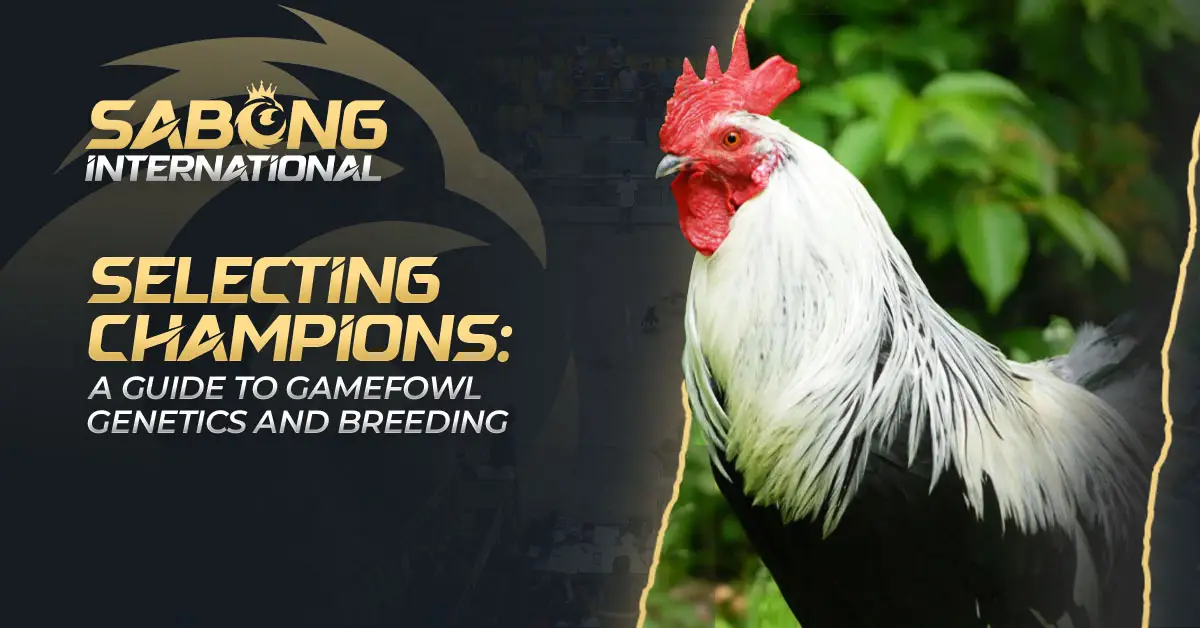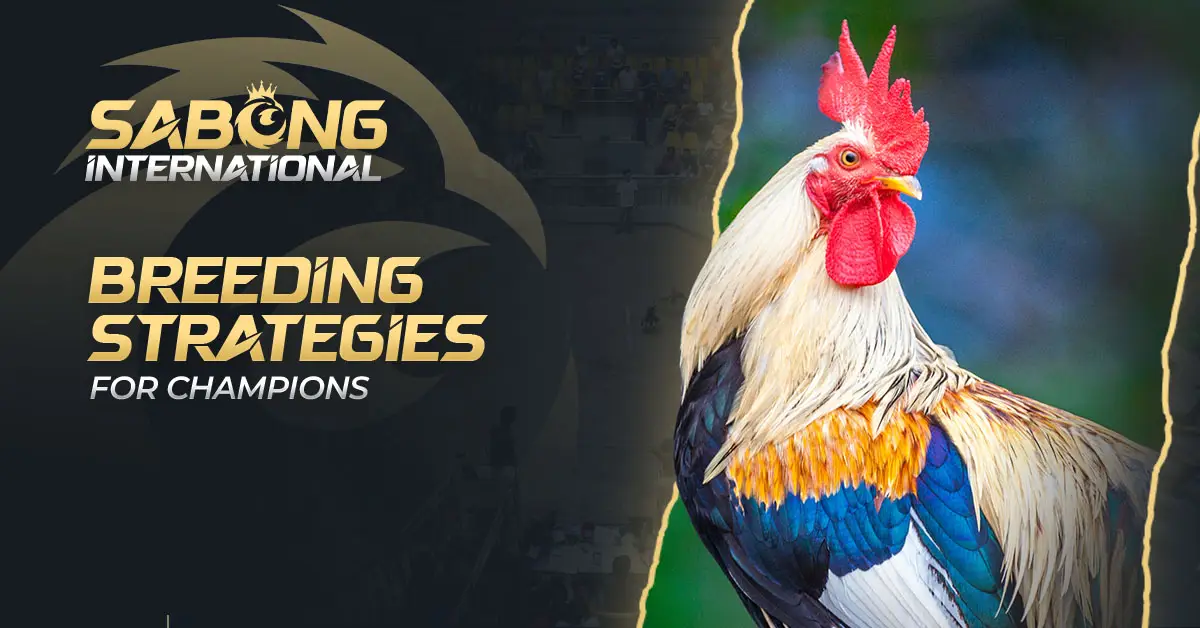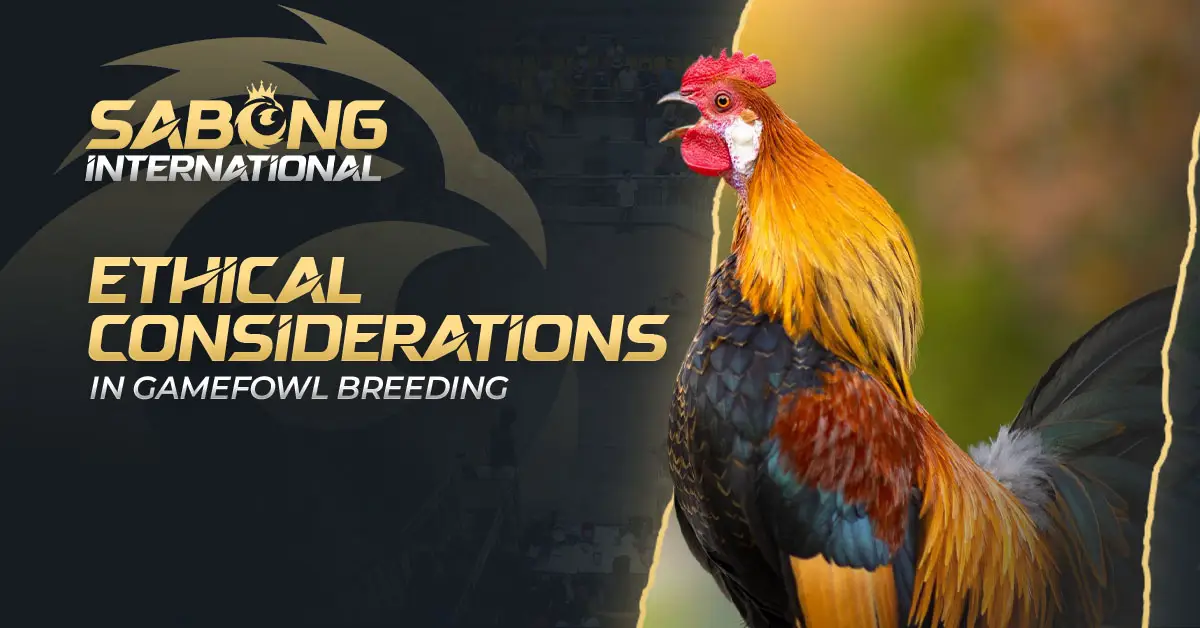Selecting Champions: A Guide to Gamefowl Genetics and Breeding

The art of breeding gamefowl is as complex as it is ancient, with the ultimate goal of selecting champions that exhibit superior traits for competition and vitality.
At the heart of this practice lies an understanding of gamefowl genetics, a critical factor in the development of winning birds. This guide will delve into the genetic principles that underpin successful gamefowl breeding and offer insights into the selection process of champion fowl.
Understanding Gamefowl Genetics
The Basics of Genetics
Genetics is the study of heredity, focusing on how traits are passed from parents to offspring. In gamefowl, as in other organisms, genetics determines a wide range of characteristics, from the physical attributes like plumage color and body size to behavioral traits such as aggression and resilience.
- DNA, Genes, and Chromosomes: DNA is the molecule that carries genetic instructions. Genes are segments of DNA that code for specific traits, and chromosomes are structures within cells that organize and carry these genes.
Inheritance Patterns
The patterns of inheritance in gamefowl follow the same fundamental principles that Gregor Mendel outlined in the 19th century. These principles explain how traits are transmitted through generations.
- Dominant vs. Recessive Traits: Dominant traits are expressed even if only one copy of the gene is present, while recessive traits require two copies to be expressed.
- Mendelian Genetics: This refers to the patterns of how traits are inherited through dominant and recessive genes.
Genetic Diversity and Health
Genetic diversity is crucial for the health and survival of any species. In gamefowl breeding, maintaining a diverse gene pool is essential for producing robust and healthy birds.
- Risks of Inbreeding: Inbreeding can lead to a decrease in genetic diversity, which can increase the risk of hereditary diseases.
- Benefits of Outcrossing: Introducing unrelated genetic material can enhance vigor and health, a concept known as hybrid vigor or heterosis.
Selecting Breeding Stock
Criteria for Selection
Choosing the right breeding stock is the first step in the journey to producing champion gamefowl. Breeders must consider a variety of factors:
- Physical Attributes: Size, color, and conformation are all important physical traits to consider.
- Performance Traits: Agility, strength, and temperament are key for competitive gamefowl.
Health and Vitality
The health of the breeding stock is paramount. Only the healthiest individuals should be selected for breeding.
- Disease-Free Stock: Selecting individuals that are free from genetic diseases is crucial.
- Health Screening: Genetic testing can identify potential health issues before they are passed onto offspring.
Behavioral Considerations
Behavior plays a significant role in the selection process. Breeders must observe and select for behaviors that will lead to success in the arena.
- Aggression Levels: The right level of aggression is necessary for competition.
- Social Dynamics: Understanding the social behavior of gamefowl can inform breeding decisions.
Breeding Strategies for Champions

Line Breeding
Line breeding is one of the core breeding strategies used to concentrate the genetics of a particular ancestor to strengthen specific traits.
This method is a cornerstone in the realm of gamefowl genetics, where the focus is often on reinforcing desirable characteristics that have been identified in a family line.
By carefully selecting which birds to breed, often those with a close genetic relationship to a prized ancestor, breeders can enhance the presence of these traits in future generations.
- Objectives: The goal is to reinforce desirable characteristics within a family line.
- Implementation: Careful planning and knowledge of genetics are required to avoid the pitfalls of reduced genetic diversity.
Crossbreeding
Crossbreeding is a fundamental component of breeding strategies that involves mating birds from different strains or breeds.
This approach is utilized to introduce new traits and enhance genetic diversity, which can lead to improved health and vitality in gamefowl populations.
By carefully selecting which birds to cross, breeders can combine the best characteristics of different lines, potentially leading to offspring that exhibit superior qualities for competition and resilience.
- Benefits: This can lead to hybrid vigor, with offspring displaying improved performance and health.
- Strategies: Successful crossbreeding requires a deep understanding of the traits present in each line.
Selective Breeding Practices
Selective breeding is the process of choosing which birds to mate based on specific desired traits.
- Impact on Future Generations: Selective breeding shapes the genetic makeup of future generations.
- Ethical Considerations: Breeders must balance the pursuit of excellence with the welfare of the animals.
Managing the Breeding Program
Record Keeping
Accurate and detailed records are the backbone of any successful breeding program.
- Importance: Records allow breeders to track genetic lines and make informed decisions.
- Tracking: Essential information includes pedigrees, breeding outcomes, and health data.
Analyzing Breeding Outcomes
Data analysis helps breeders refine their strategies and improve their stock.
- Data-Driven Decisions: Reviewing records can highlight successful pairings and areas for improvement.
- Genetic Databases: Modern software can assist in managing and interpreting genetic information.
Improving the Stock
The ultimate goal of any gamefowl breeder is to continually improve their flock.
- Continuous Improvement: Breeding programs should aim for ongoing enhancement of traits.
- Genetic Health: The health and vitality of the gamefowl should always be a priority.
Ethical Considerations in Gamefowl Breeding

Welfare of the Gamefowl
Ethical breeding practices are not only about producing champions but also ensuring the welfare of the gamefowl. Breeders have a responsibility to maintain the highest standards of care.
- Health and Well-being: Regular health checks and a nurturing environment are essential for the physical and mental well-being of gamefowl.
- Humane Treatment: Ethical breeders prioritize the humane treatment of all birds, with proper living conditions and medical care.
The Future of Gamefowl Genetics
As genetic technologies advance, the potential for their application in gamefowl breeding grows. However, this power comes with a responsibility to preserve the integrity of the breed.
- Emerging Technologies: Gene editing and advanced genetic testing offer new opportunities for breeders.
- Preservation of the Breed: While embracing innovation, breeders must also safeguard the natural characteristics that define the gamefowl.
Conclusion
The journey of breeding gamefowl champions is a blend of science and art. It requires a deep understanding of genetics and a commitment to ethical practices.
By carefully selecting breeding stock, employing strategic breeding methods, and managing the breeding program with precision, breeders can produce gamefowl that not only excel in the arena but also contribute to the genetic legacy of the breed.
Sabong International, the best e-sabong platform is your gateway to the vibrant world of gamefowl, which offers a wealth of resources and information for enthusiasts and breeders alike.


